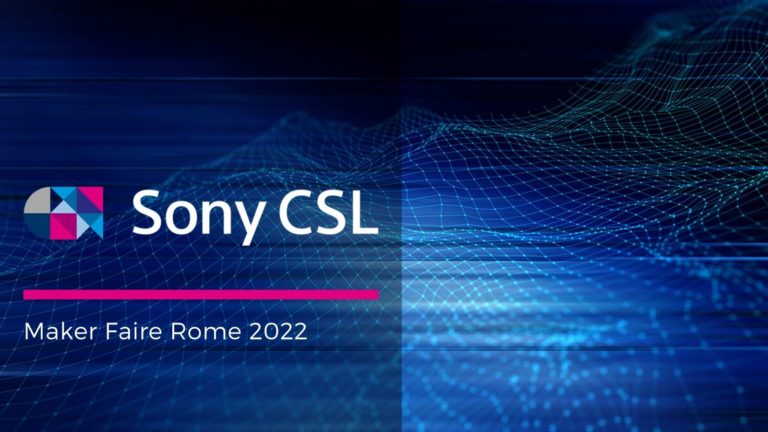Sony Computer Science Laboratories Paris and Rome renewed the partnership with Maker Faire Rome and are getting ready to welcome the visitors in a huge exhibition area full of technology and unmissable experiences
The European branches of Sony Computer Science Laboratories Inc. (hereinafter ‘Sony CSL’), Sony CSL Paris and Sony CSL Rome will play center role to Sony’s exhibition area with different booths dedicated to sustainable agriculture, 15-minutes city, infosphere and social dialogue, language and the fascinating interaction between artificial intelligence and arts. intelligence and arts.
As with last year, Sony CSL will be joined by Sony Europe’s other divisions: SSS-Europe, with a stand dedicated to semiconductor solutions contributing to smart cities, and by Professional Displays & Solutions, offering visitors an interactive experience utilizing its Crystal LED display technology.
15 Minutes City

Modern cities are speed-based, designed to allow citizens to move in the fastest possible way, and the growing efficiency of transportation systems led cities to expand. Citizens’ travel times, in contrast, stayed constant through the decades even though the distance traveled increased. The side effects of this process include public transportation overcrowding, traffic jams and increased emissions.
The scientist Carlos Moreno proposed a new concept to revolutionize urban environments, the 15 Minute City: individuals should always be able to reach the set of venues they visit the most within a 15 minutes travel distance by bike or on foot.
To assess whether different città are compliant with this idea, Sony CSL developed the 15 Minute City platform. Exploiting open data about venues in cities, historical data about individuals’ GPS tracks and routing algorithms, we map how close urban areas are to the 15 Minute concept. This tool is freely available online and will be enriched with more data and features.
ARTIS
Text comprehension is a complex cognitive task that can be difficult and frustrating for many children with a learning disability. Text comprehension – besides being a crucial skill for many aspects of our daily lives – forms the basis of our educational system. The Sony CSL language team tries to solve this difficulty by designing accessible and inclusive language technologies to enable hybrid educational therapies and practices. At CRC – Centro Ricerca e Cura, a center specializing in the rehabilitation of Neurodevelopmental Disorders, children undertake pathways to increase their language and communication skills and learn strategies to compensate for learning difficulties.
With this in mind, Sony and CRC are collaborating to design and evaluate together whether a reading comprehension interface, powered by artificial intelligence, could make the entire reading and text comprehension process more customisable, multimodal and truly inclusive.
Art and Science: the S+T+ARTS Project
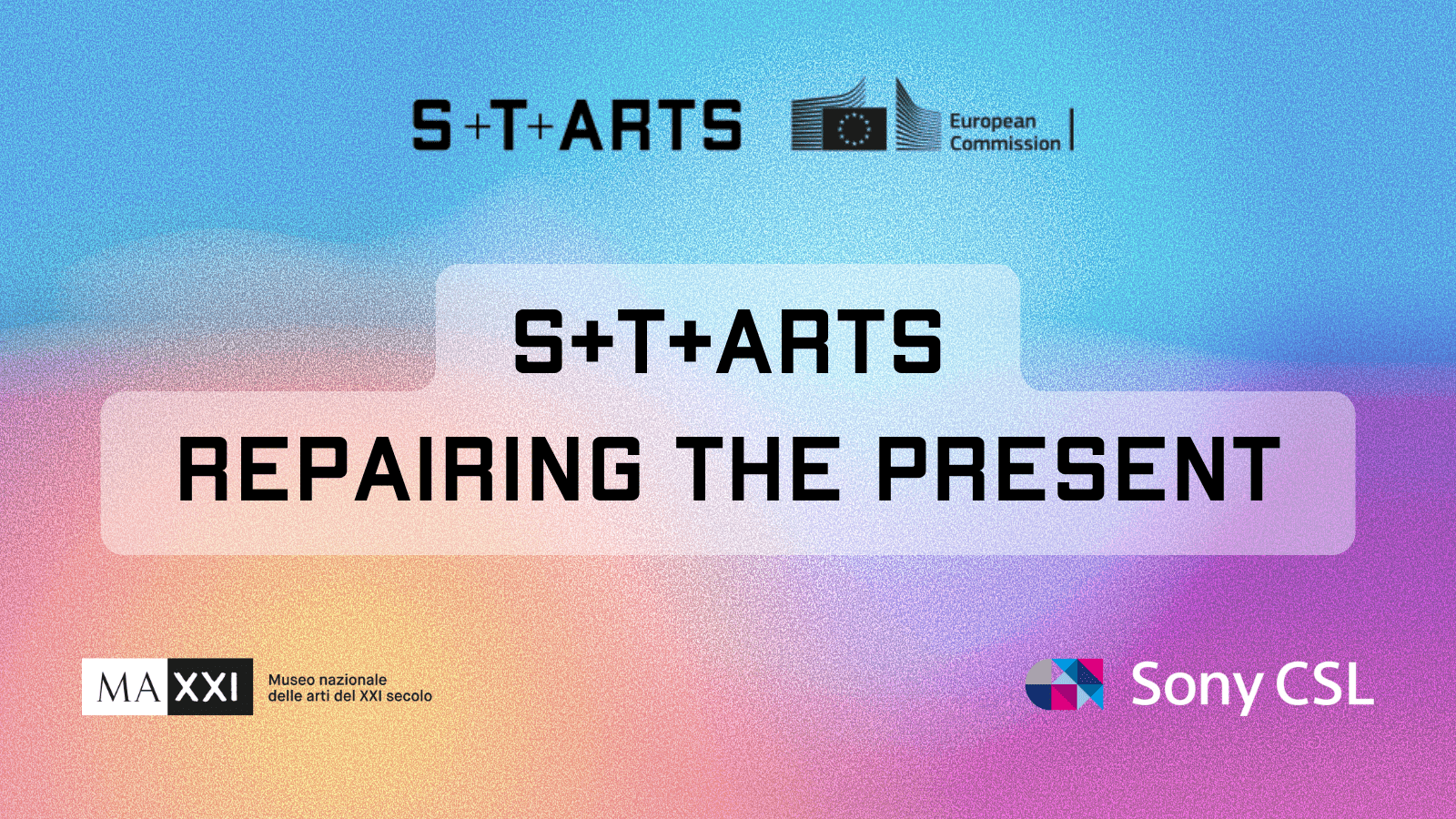
S+T+ARTS is a European Project for the intersection of science, technology, and arts. The 2021 edition, Repairing the Present, asked artists worldwide to imagine a more sustainable, green, and livable city. Sony CSL and MAXXI museum selected two relevant artists that spent six months in residency in Rome. Olga Kisseleva, an artist from Paris, has been involved in the beneficial role of trees in urban areas. Through her installation “Cities live like trees,” she reshaped urban mobility in terms of the green awareness of citizens. The second installation, by Susi Gutsche from Vienna, is focused on public awareness of waste mobility. In “Trace your Waste,” she mapped the path followed by the garbage after it has been released in a trash can, both in urban areas of Rome and, more in general, at the country level. Sony CSL supported the artists as regards the data and algorithms part. At the same time, MAXXI contributed with its artistic curatorial expertise.
Face to Face
From the scientific point of view, creativity can be put in relation to the ability to explore the elements of what we call “the space of possibilities”. Such a space contains all the possible variations of what we already know, along with some unexpected new idea whose origin and content is hardly predictable. In general, exploring the space of possibilities allows us to find original, pleasant, or valuable solutions by starting from the data we have to represent a specific field. Nowadays, Artificial Intelligence is a fruitful tool for detecting the relevant features from a set of data, allowing a direct interaction with the space of possibilities.
In this installation, Sony proposes you explore the space of human faces by starting from a snapshot of your face and modifying the abstract space of AI faces’ representation by drawing over it. Sometimes you find something original and exciting, while in other cases, you may move in a direction where the face is compromised. Can you find the most suitable modification for your taste?
Foremusic
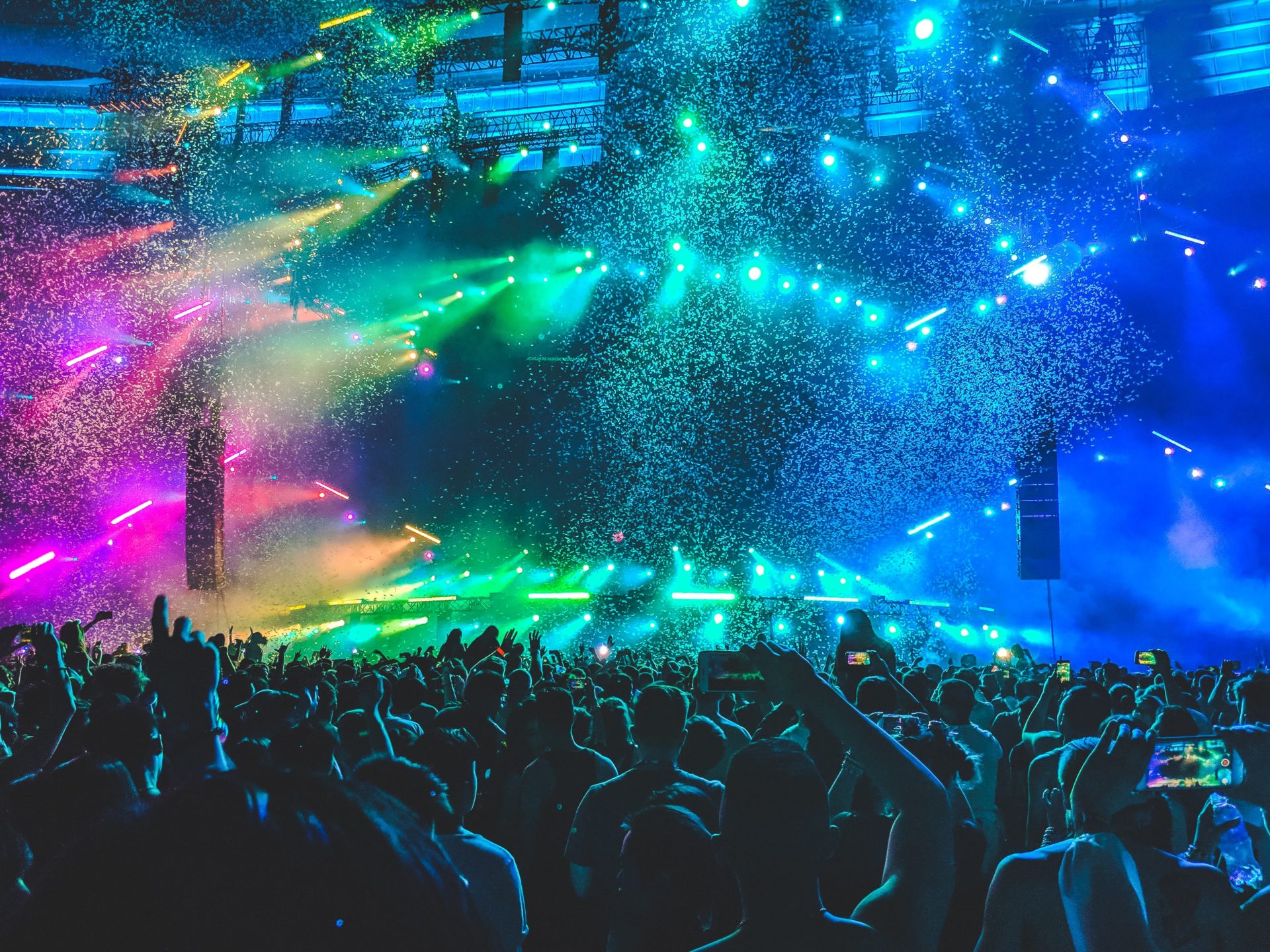
Will your favorite artist’s next song be a hit or a miss? Foremusic enables you to discover in advance how well a song will be received by the public, according to Spotify and YouTube’s success metrics. Sony CSL has developed this AI system to investigate whether success can be predicted using the big data from major streaming service platforms, to understand what are the drivers of popularity in the music industry.
The Foremusic project stems from a research line that aims at investigating patterns of success shared by creative products of artistic and entertainment nature. Such research also intersects with the development of AI systems that support decision-making and involves the relation between human and machine.
KOUZAN

Understanding how information flows in human communication has always been a challenging task. The detection and evaluation of the interactions involving knowledge transfer are complex. Knowledge can be transmitted through written texts, conversations, or by visiting the expositions at a fair. KOUZAN, developed in collaboration with the Complexity Science Hub Vienna, addresses the challenge of quantifying the intangible asset represented by information. It provides essential tools to annotate and record fundamental human interactions with meaningful knowledge content.
At Maker Faire Rome 2022, KOUZAN presents an application, Kouzan-Expo, that allows an interaction between the visitors and the installations of the fair. Visitors can access the informative material about the installation by scanning its QR code with the app. They can also express their level of appreciation of the installation through stars (1=not interesting, 5=interesting) and add comments. They can browse the chronology of their journey at any moment and get an indication of how predictable their rating activity was.
VALAWAI
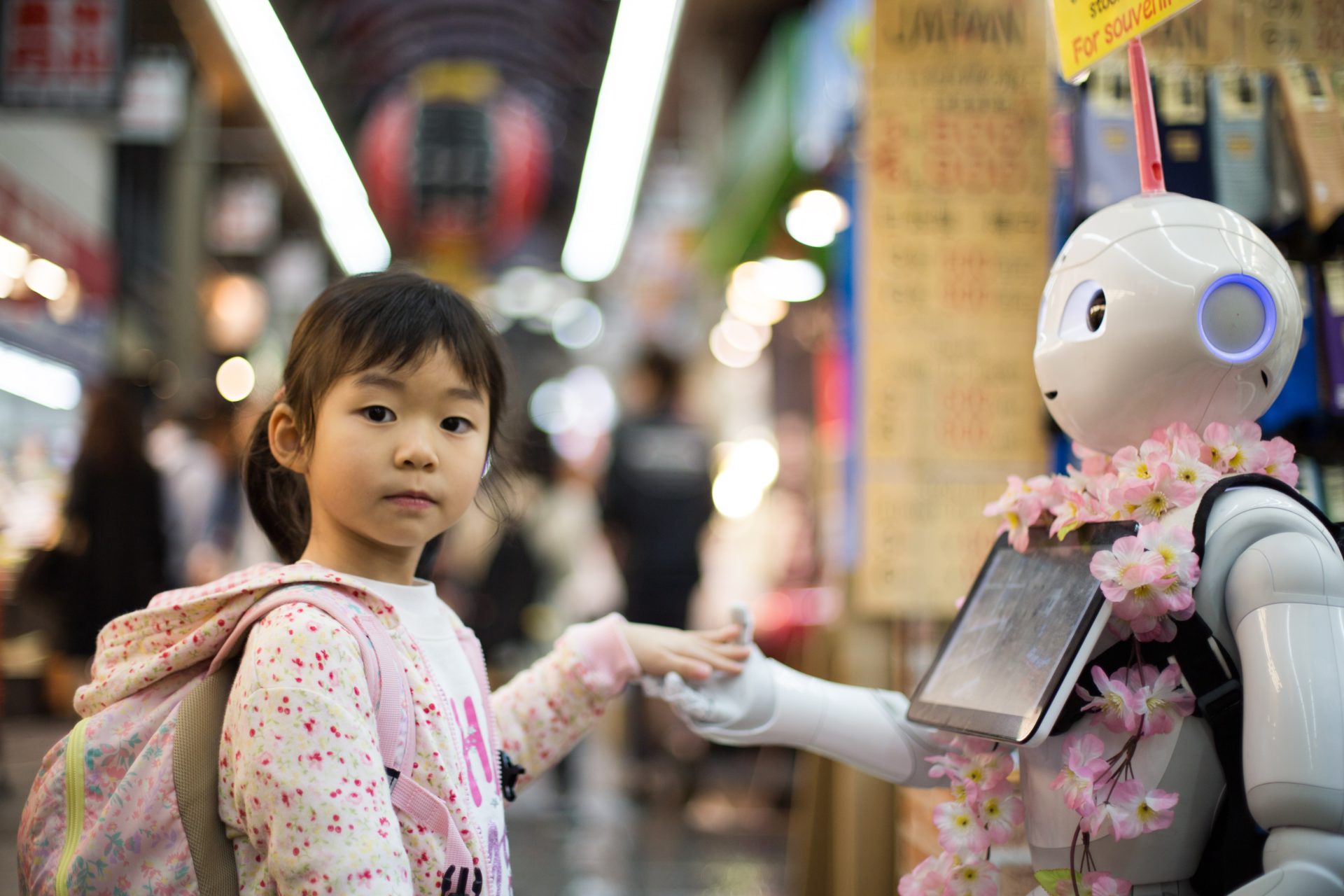
Value-Aware AI is an AI performing the same function as human moral consciousness, namely the capacity to acquire and maintain a value system, use this value system to decide whether actions are morally acceptable, be aware of and adapt to the value systems of its users.
For this project, funded by the EU, Sony is collaborating with other European institutions (CISIC Barcelona, Institut Mar d’Investigacions Mediques, Istituto Italiano di Tecnologia, Ghent University, Studio Stelluti) to develop value-aware AI components based on actual neuroscientific models. The aim is to account for moral values alignment in the machine decisional process, in a way that makes both the system’s decisions and its core values transparent and improves the human agency when interacting with the machine.
Sony CSL will also implement this new AI tool for viewpoints detections in the news items, to raise awareness on the plurality of voices in the public discourse while improving the user’s fruition of information (e.g., a way to escape echo chambers).
Robotics for Microfarms
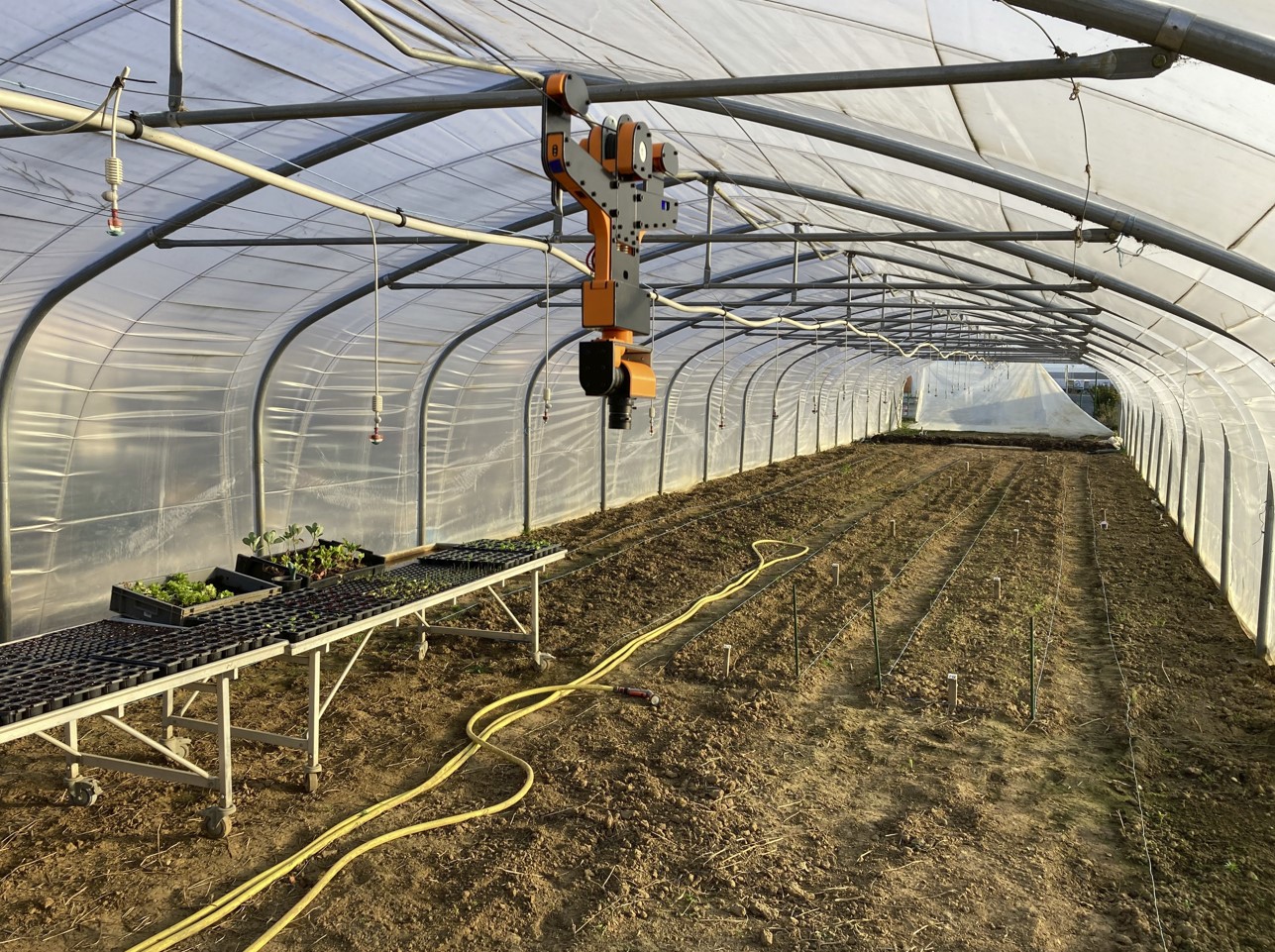
The sustainability team at Sony CSL looks for novel technological solutions to create a more sustainable society. One such project is the Robotics for Microfarms (ROMI). All over Europe, young farmers are starting small market farms. These farms can be found in both rural and urban areas. They grow up to 100 different varieties of vegetables per year on 0.01 to 2 hectare using organic farming practices. Maintaining organic standards, and using no herbicides, means that much of the work is done manually, resulting in physically challenging work conditions and high labour costs.
ROMI aims to help these small farms by performing some of the labour intensive work autonomously and assisting in the planning of the crops and harvests. This cuts costs and increases productivity. Sony will show the cablebot that was jointly developed by Iaac/FabLab Barcelona and Sony CSL. The cablebot’s camera is used to take daily images of the plants and help predict when they will be ready for harvest and what space will become available for new plantations.
The ROMI project received funding from the EU Horizon 2020 research and innovation programme under grant agreement No 773875. The work on the robots received additional funding from EU’s Horizon 2020 programme through the CENTRINNO project under grant agreement No 869595.
We Write
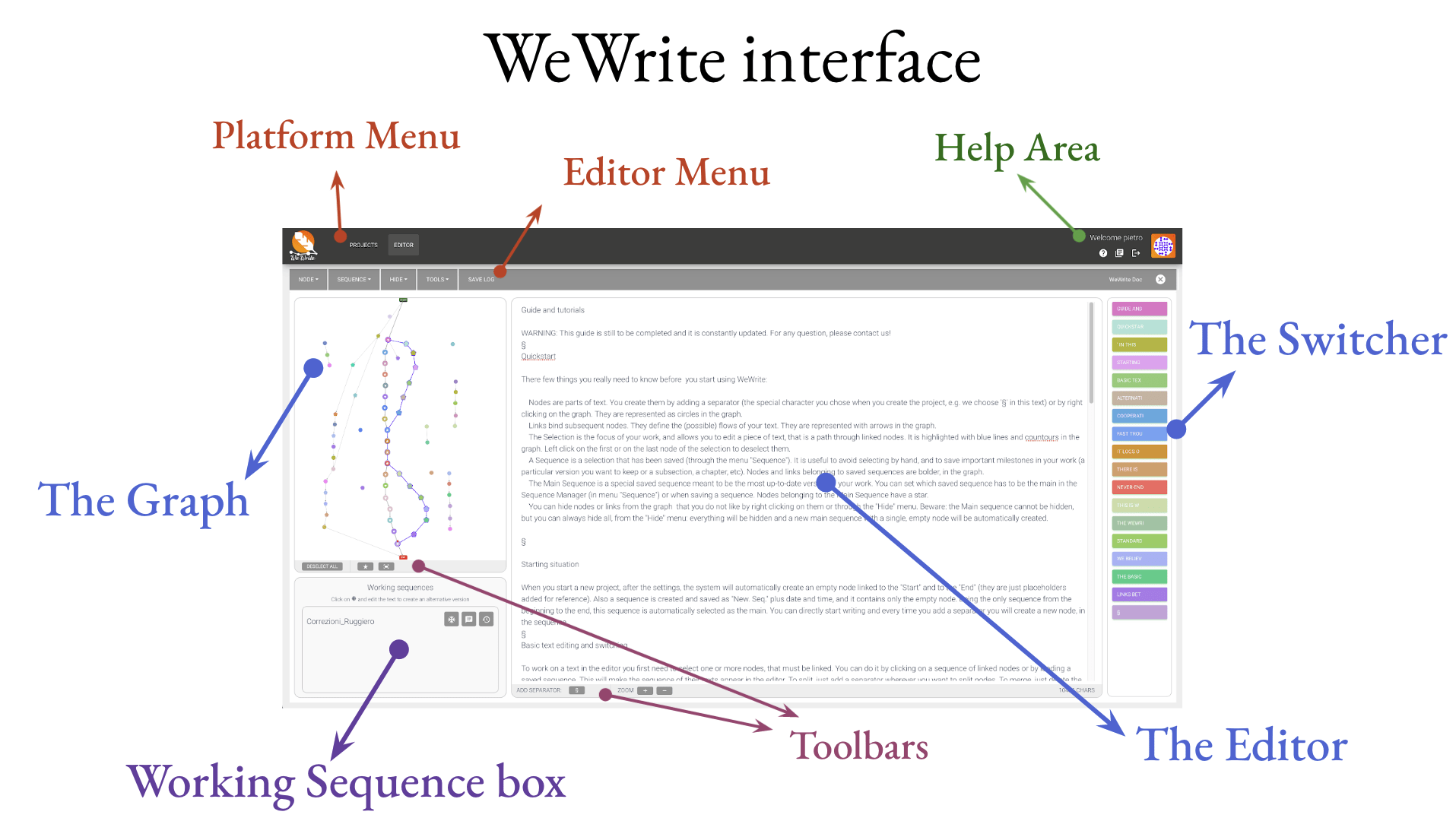
Writing is a complex process. Yet, almost all current text editors seem to be designed as if authors already know exactly what they want to write from the beginning, and they just have to type it down in a linear and straightforward way, completely neglecting the complexity of the creative process. The philosophy of WeWrite is to create an environment where creativity, exploration, recombination, and, more in general, the complexities of the evolution of a text are supported to their wildest extents.
One of the basic concepts behind this philosophy is that technology should be shaped around us, and not vice-versa. And, in particular, our IT tools should be designed around the human mental process. And writing, in particular, is a process that suffers from many technological constraints, despite the impressive advances of the last decades. With WeWrite you will experience a new writing environment that will unlock new possibilities and unleash your creative potential. Find out more at: https://wewrite.cslparis.com
Infosphere
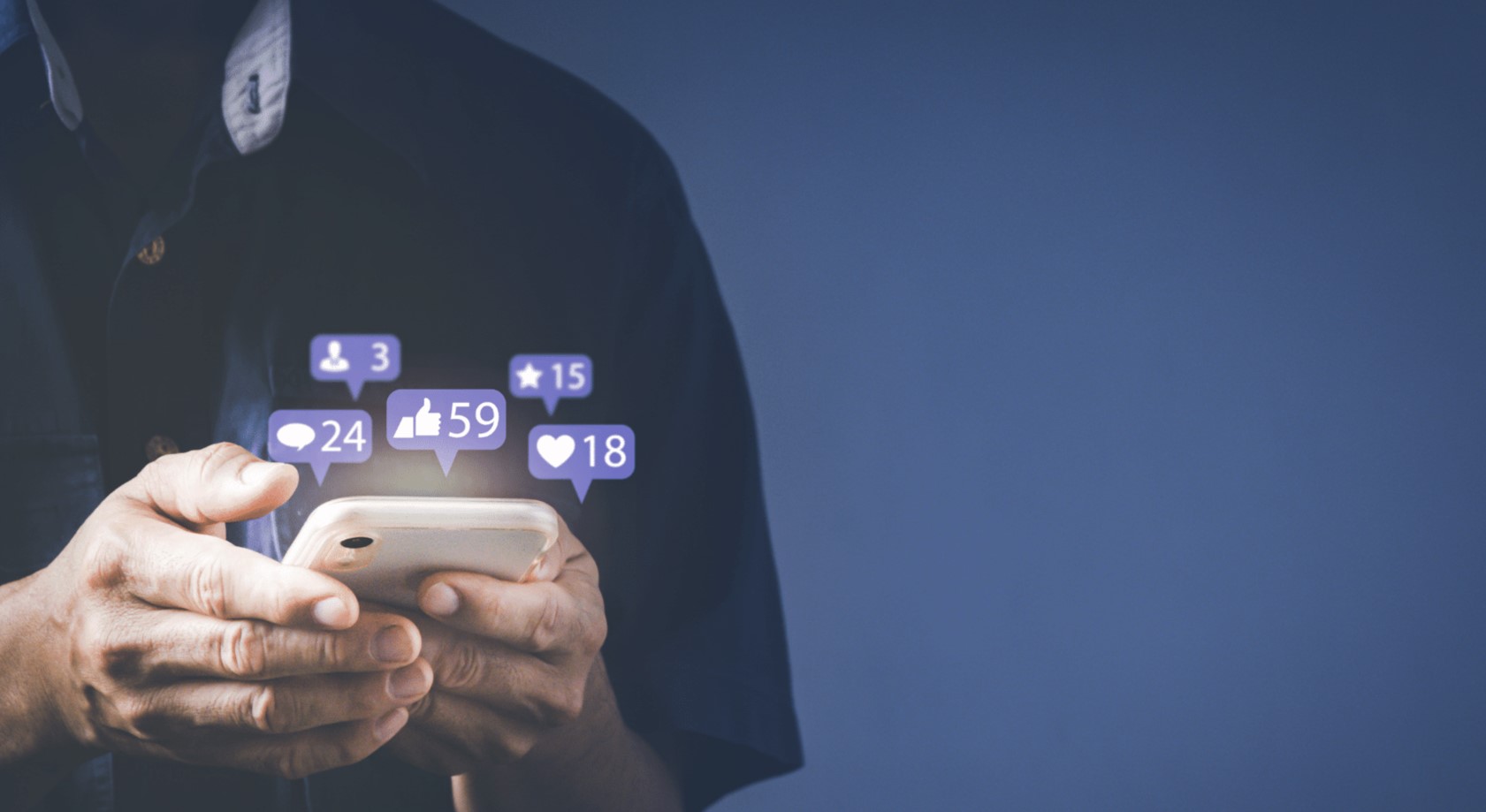
The Infosphere research line at Sony Computer Science Labs is tackling the challenge of redesigning Information Technologies to make information more accessible and social dialogue more transparent, understandable, and healthy. Sony’s team is based in Rome (Italy) and in Paris (France), and we cooperate with journalists, editors, national authorities, and institutions. Our final aim is to improve our societies’ information dynamics through new IT tools built around human information processing, both at the individual and the collective level, and to contrast real and present dangers to our democracies. Find out more at: https://csl.sony.it/infosphere.
Lab4 News is a research and development initiative dedicated to the world of information, publishing and new media that aims to act as a bridge between scientific and technological innovations and the actors of the so-called “infosphere”: from publishers to journalists, from the authorities to social media. Find out more at: https://lab4.news.
Maker Faire Rome – The European Edition has been committed since its very first editions to make innovation accessible and usable to all, with the aim of not leaving anyone behind. Its blog is always updated and full of opportunities and inspiration for makers, makers, startups, SMEs and all the curious ones who wish to enrich their knowledge and expand their business, in Italy and abroad.
From October 7 to 9 come and visit Maker Faire Rome at Gazometro Ostiense. Info and tickets: https://makerfairerome.eu/it/biglietti/


